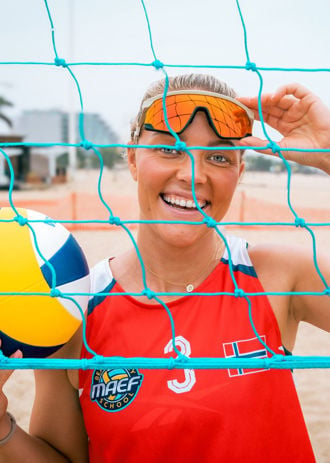We are deeply impressed by the willingness, flexibility and effort shown by the Norwegian athletes and support staff, who embraced the challenge in Angola and acted as first-class diplomats.
More Than a Match: Norway’s Beach Handball Team Builds Community in Angola
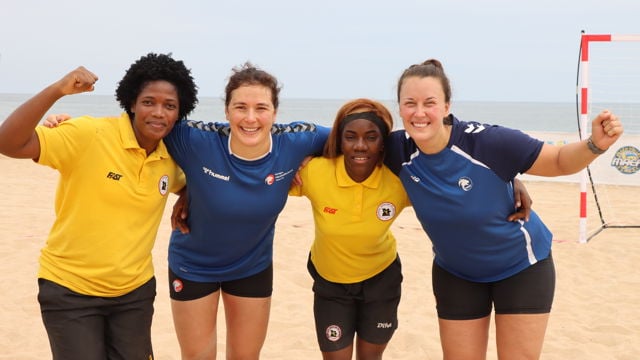
The Norwegian women’s beach handball team became known worldwide when they challenged uniform regulations and put women’s rights in sport on the agenda. Now they are in Angola – not only to play, but to stand in solidarity with young women in the fight for equality, health and freedom.
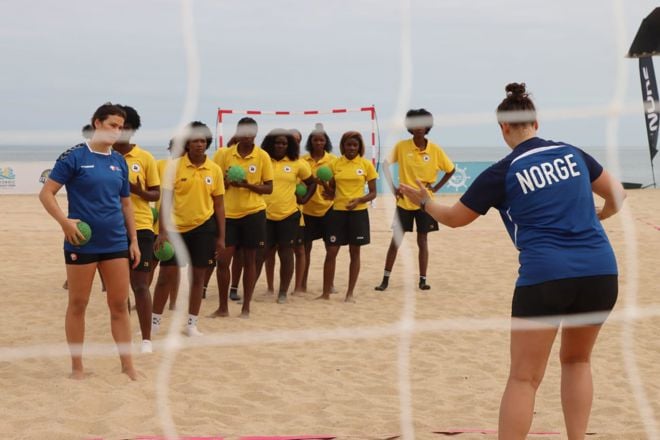
From September 15–21, Nordic Beach Week was held in Lobito, Angola.
This week, more than 200 athletes, coaches and officials are taking part in Nordic Beach Week in Lobito, Angola. The international training camp for beach handball and beach volleyball focuses on cooperation, youth engagement and gender equality. The event is a partnership between the Norwegian Embassy in Angola, the Norwegian Olympic and Paralympic Committee and Confederation of Sports, and Angolan partners, with support from Norway. The aim is to give young athletes the opportunity to meet, learn from each other and grow – both as sports performers and as role models.
– Having Norway’s national team visit Angola provides a unique opportunity to strengthen cultural and sporting exchange between our two countries. The gathering helps to empower women: building autonomy and self-confidence, promoting gender equality, supporting health and well-being, and fostering the development of important skills. It is an honour to have them here with us, says Edlénia José, captain of Angola’s national beach handball team.
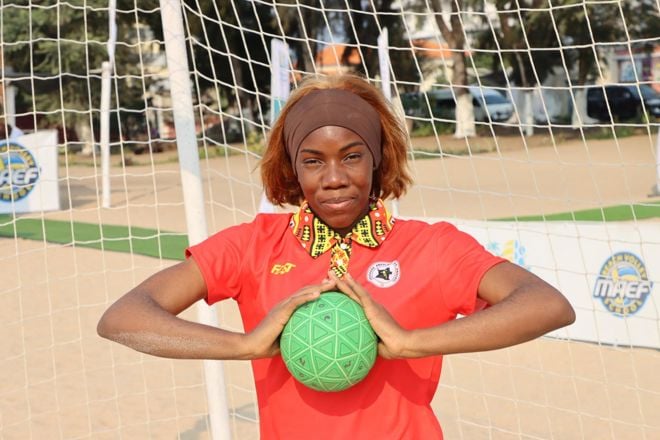
Edlénia José is the captain of Angola's national beach handball team.
From game rules to self-determination
The Norwegian women’s beach handball team is already recognised as a leading role model in international sport.
In 2021 the team took a firm stand against international dress codes, challenging – and ultimately changing – the requirement to wear bikinis by insisting on the right to play in shorts. At a time when women’s rights are under pressure in many parts of the world, the team has become a symbol of freedom and participation.
– This fight has shaped our identity, and we are proud to represent values such as equality, inclusion and courage – also here in Angola, says Julie Asplund Berg, beach handball manager at the Norwegian Handball Federation.
Together with Angolan players, the Norwegian athletes visited a youth centre in Luanda to learn more about UNFPA’s programme on sexual and reproductive health and rights (SRHR), financed with support from Norway.
The programme reaches 50,000 young people with information and services on sexual and reproductive health, contraception and menstruation – including the introduction of reusable pads and training of health personnel. The programme also works to reduce maternal mortality, shift harmful gender norms and combat gender-based violence.
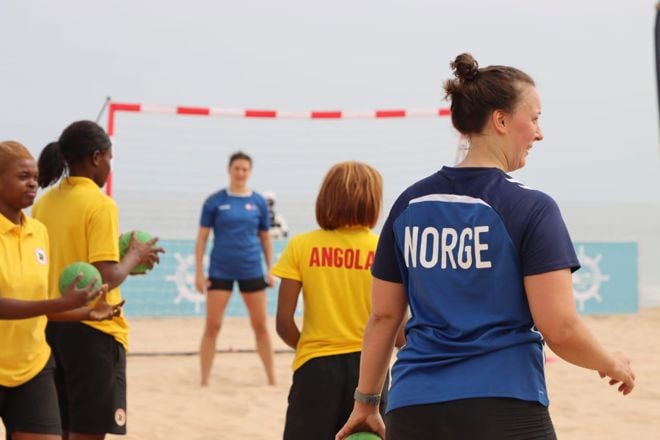
The Norwegian and Angolan players are training together on the beach in Lobito.
Sport as an arena for change
Norway has made SRHR a clear political priority in its foreign and development policy. The Government has committed NOK 9.6 billion for the period 2020–2025 to strengthen global efforts. A key objective is to build resilient health systems and strengthen primary health care so that SRHR becomes an integral part of health services for all.
– Work on sexual and reproductive health strengthens young people’s ability to make informed choices and live safe lives. But knowledge alone is not enough – young people also need arenas where they can experience mastery and support. Shere, sport provides a powerful platform for change, says Norad Director Gunn Jorid Roset.
Through a week of training sessions, workshops, tournaments and joint activities, athletes from Angola, Norway, Sweden and several other countries have exchanged experiences, learned from each other and built strong connections.
